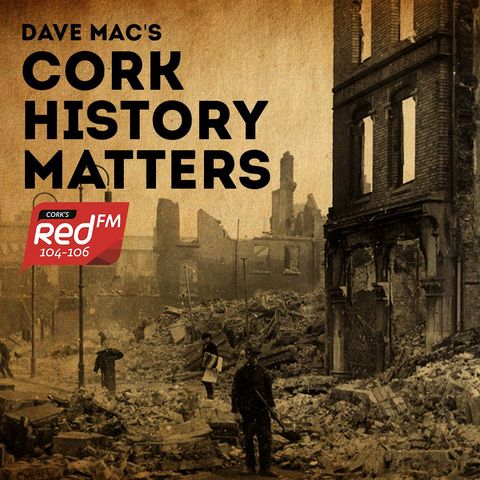12 DIC 2022 · Elvera Butler on ‘Downtown Kampus at The Arcadia 1977-81’
In this Cork History Matters podcast chat Elvera Butler tells Dave Macardle the story of one of Cork’s most important musical institutions, the Downtown Kampus at The Arcadia. As Colm O’Callaghan of the brilliant Blackpool Sentinel music history blog put it “The Downtown Kampus rightly enjoys a mythical standing in the history of contemporary music in Cork, as much for the quality and spirit of the music it hosted as for what it represented in wider socio-cultural terms.”
An essential proving ground for a young U2 – who took their sound and road crew from those who worked at the venue – to varied names like John Otway, The Beat, The Specials, Nun Attax, XTC, Sleepy Hollow, The Only Ones, The Blades, UB40, The Undertones, The Cure, The Damned, Doctor Feelgood, The Virgin Prunes and hundreds of others all played this hugely influential and inspirational. It was the petri dish for Cork’s alternative music culture that lead to all that was to come throughout the 80s, into the 90s and beyond. Run by Thurles native Elvera Butler and partner Andy Foster, The Arcadia was one of the few places in Cork city that would host punk bands. Butler had been the entertainments officer at University College Cork, and so the venue became known as the 'Downtown Kampus'. The punk scene that developed in the late at the Arc was an important turning point for emerging Cork punk music; until then live music in the city had consisted mostly of Blues and pub rock bands. According to Mean Features guitarist Liam Heffernan, "the [emerging post-punk] scene was amazing....there was nothing else really in late Seventies and early Eighties Cork. Heavy industry was whacked. Elvera Butler brought some fantastic music to Cork. That woke us all up.”


